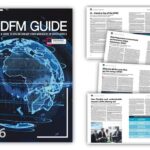Late former president Nelson Mandela believed in economic justice and the need for all South Africans to have access to resources and opportunities to enable them to live a decent life. This vision is as relevant today as it was in 1994. Financial inclusion is about having access to affordable financial services and the right financial advice.
Bertie Nel, Momentum Head of Financial Planning and Advice, explains that to reduce inequality and close the wealth gap, more South Africans must be financially literate.
When people can access tools like loans, credit, insurance products, and retirement savings, they have the power to build wealth. This, in turn, creates a powerful ripple effect, strengthening our communities and the broader economy.
Encouragingly, digital technologies such as artificial intelligence (AI) and online platforms can offer personalised financial advice at a lower cost than traditional human advice. An academic article, written by Paul Kofman and published in the Journal of Business Ethics in April 2024[1], says “…robo-advice is easily accessible, available on-demand, and pools all relevant information in finding and implementing and optimal financial plan”.
AI is helping us move beyond traditional financial structures and redefining what it means to be financially inclusive, says Nel. However, he adds that even for those who are considered financially literate, financial decision-making is complex and challenging. It follows then that robo-advice cannot replace the valuable human interaction with a trusted financial adviser. Rather, he says, digital technologies like data analytics and AI can automate routine tasks for financial advisers, freeing up their time to focus on what they do best: engaging in meaningful interaction with clients in an advice-led engagement focused on truly meeting an individual’s holistic financial needs.
Technology makes it possible to combine insightful data with their human understanding of a client’s needs to provide a service that offers the best of both worlds: tailored strategies that evolve with the client’s life stage and ensure their financial plans always remains relevant.
Technology is also making it possible for clients to connect with financial guidance in more personalised ways. For example, clients can choose how and when they want to communicate with their financial adviser, whether through a quick and convenient WhatsApp chatbot, smart-friendly apps, or websites with useful tools to guide clients through important life events that have an impact on their finances like changing jobs, taking out insurance, planning for retirement, or navigating life after retirement.
One of the biggest benefits of the shift to digital technologies is that financial advisers’ expertise has actually become even more valuable, says Nel. “Technology makes it possible to combine insightful data with their human understanding of a client’s needs to provide a service that offers the best of both worlds: tailored strategies that evolve with the client’s life stage and ensure their financial plans always remains relevant.”
Ultimately, Nel says, the primary goal of the financial adviser is to help their clients build financial resilience and achieve their short- medium- and long-term financial goals on their journey to success, even in an unpredictable macro-economic climate.
Echoing the title of late former President Nelson Mandela’s biography, “The Long Walk to Freedom”, the (long) journey to financial resilience, independence, and freedom also starts with one step: having access to and getting the right advice – and financial adviser – for your individual needs and goals, because no two journeys are alike
-Nel concludes.
Sources
- [1]Kofman, P. ‘Scoring the Ethics of AI Robo-Advice: Why We Need Gateways and Ratings’. J Bus Ethics 198, 21–33 (2025). https://doi.org/10.1007/s10551-024-05753-5













